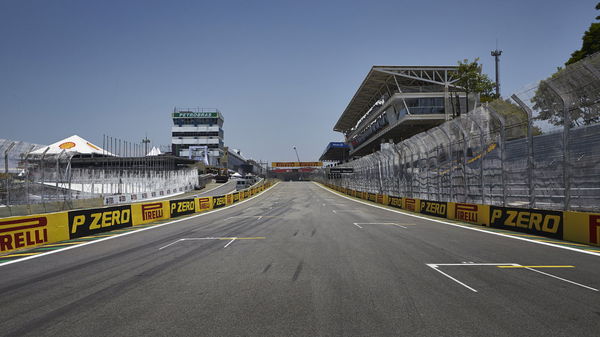

Finally after ruling the sport for decades with his autocratic attitude,
Bernie Ecclestone, after having being sidelined by the new owners and then trying his hand at helping the Interlagos circuit getting out of its blues, he finally admitted to having charged the circuits a little too much. And that is by far the biggest understatement of the year. Credit where credit’s due, Bernie made F1 the powerhouse it is today. Far from the largely informal and manufacturer skewed races of the 80s, Bernie converted the whole sport into the magnum opus circus it is today. But he also is responsible for the rundown state that has gripped the sport today.
ADVERTISEMENT
Article continues below this ad
In his bid to mint more money from the sport, he corporatised it and at one point sold it to the soulless CVC who had no interest in the sport but only had one aim of multiplying its
investment just because they allowed him total control over the sport something he desperately craves.
And at the same time when the global economy hit a new low, Bernie took the sport to places that had no motor sporting history because they allowed the money to flow in at the expense of the traditional circuits that were barely able to match up the continued increase in hosting fees that were levied on them.

With escalation clauses that increased the hosting fees every year by quite a margin, circuits especially the older ones continued to bleed. Circuits or say race promoters usually depend on two sources of income. First is the sponsorship money that comes from allowing companies to place their brand hoardings all over the circuit and the income from ticket sales. There is also a third source in the form of aid from the governments that bear the certain cost of the hosting a race because a race event promotes the local business, bring in foreign visitors and acts as a tourist destination.
But lately, things have not been going so strong for these circuits. Economy problems mean that the state funding has dried up for many a circuit, while a poor form of racing has turned many a circuit goers away. New audiences have not turned up in a great number because of the high ticket prices which are a result of high hosting prices that the FOM charges these circuits.The average price of 3-day General Admission tickets in 2016 was $133 USD while the average price of the cheapest 3-day Grandstand tickets in 2016 was $224 USD. Taking the sport to new locations that have a plenty of money to throw at meant that the hosting prices never came down. And the new generation of fans are very content with watching the whole season live in their laptops, television and mobile phones in ultra high definition means another area of income for the circuit which forms the major chunk of the revenue continues to shrink making the circuits vulnerable to collapsing under the weight of the immense financial burden.
Germany, the home of motorsport itself has a very fluctuating race dropping in and out of the

Staging an F1 race is not cheap. Coming down to the exact cost depends on country to country, the length of the circuit and whether it’s a street race or a proper purpose built race track. An estimate by raconteur.net puts the cost of hosting of a 3.2-mile street race in the region north of $57 million. But this estimate does not include the hosting fee which starts from $30 million and increases by a whopping 10% every year. That means a regular five-year deal will see the organiser paying $45 million in the final year of its contract which is just a little shy of hosting the race itself! Similar is the case with building a race on a proper circuit. However all of that is still easy, what’s not easy is then selling the tickets and promoting the race.
Take all this into account and the plight of many a track that have either fallen by the wayside or barely making it every year becomes very clear and empathic. And this is why Malaysia is dropping the race, Germany is alternating it and Silverstone struggling to make ends meet.
ADVERTISEMENT
Article continues below this ad
So this should be the first area where the new owners must do something positive or else we won’t be left with circuits to race on. I agree that any change before 2021 is highly unlikely, but this is the way to go. Re-organising the internal revenue structure between the teams can wait for a little, however, this situation can’t. At this juncture, F1 must take a leaf out of MotoGP’s playbook where the circuits pay in the range of 7-8 million dollars on an average and the most expensive ones cap out at 10 million dollars but what’s more delightful for the organisers is the absence of an escalation clause which means even the most expensive race pays no more than 50 million dollars over the course of 5 years deal equal to what an F1 race organiser pays in just one year.

ADVERTISEMENT
Article continues below this ad
With a lot of venues facing the threat despite being the popular events and hosting good races, it’s high time F1 addressed this issue because countries now have events like MotoGP and Formula E to divert their funds from an F1 race to staging these events that offer a great level of exposure to the country in comparison to the costs incurred in organising them and for the private organiser, all that he cares for is the money he makes at the end of the day and these other avenues offer just that. Because currently, F1 stands the risk of losing venues that offer great racing in exchange of venues that only bring cash to the management and in turn provide only processional and boring races.

Challenge Your Sports Knowledge!
Solve the puzzle and prove your knowledge of iconic players, terms, and moments.


